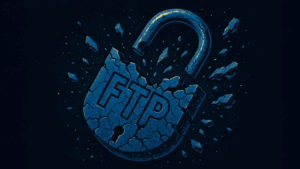
Bundesliga offers a roadmap for the relaunch of professional sports broadcasting
While the United States largely remains under COVID-19 lockdown, a number of nations in Europe have begun to soften social distancing restrictions and attempt to slowly move back toward a sense of normalcy. One of the most discussed elements of this transition has been the gradual return of live sports — especially football — the cancellation of which was one of the first major signs of the coronavirus’ undeniable severity. In particular, the German Bundesliga football association’s steps to bring games back to sports-starved fans has received a great deal of attention.
When it was first announced that the Bundesliga would be resuming play, many wondered how exactly the organization would do so while ensuring the safety of players and staff, and how production and broadcasting of games would ultimately work. As more information has come out about the dynamic and well-considered strategy the association implemented, leagues and franchises within the US can benefit, gleaning ideas and tools to help solve the conundrum of restarting major sporting events that has become the subject of much frustration.
Bundesliga is putting safety first
When Bundesliga returned with seven games on May 16th, the atmosphere was a far cry from what football fanatics are used to. In order to ensure the safety of both players and fans, play took place in a completely empty stadium — an approach which will continue for some time. Players who were not on the pitch wore masks, and were required to maintain strict social distancing. Prior to the official restart — during planning and training — all teams were quarantined under strict regulations to guarantee that there was not an outbreak of COVID-19 within the league.
While ESPN notes that goal celebrations were somewhat awkward and the desolation in the stands took some getting used to, they note that the games went incredibly smoothly given the far from ordinary circumstances. And while responses to the new approach from fans were mixed — as is to be expected as everyone begins to adjust — the guidelines that Bundesliga put into effect were a success, with only a few hiccups.
Sports broadcasting (from a social distance)
Perhaps just as fascinating and instructive as the measures that Bundesliga had to take to ensure the safety of their players are the strategies that BT Sports — which is normally in charge of broadcasting the associations matches — adopted in order to bring the experience to the fans.
While a normal production of this sort would have fifty to sixty people in studio, BT Sports was able to limit that number to six on-site personnel, while the rest worked remotely. In order to accomplish this feat, a lot of considerations had to be taken into account. While the central servers would have to remain in the studio, the majority of other production kits were totally mobile, smaller as they are than what many might expect. Moving the kits to producers houses, while putting additional equipment — such as the main vision mixer — in the house of the director, production crews were able to transfer footage in real-time via 4G and operate that central vision mixer remotely. According to Jamie Hindhaugh, BT Sports’ chief operating officer, “It’s like you’re driving a car, but you’re in a simulator.”
Commentators, too, were instructed to broadcast remotely with Paul Dempsey and Steve McManaman discussing play from Northern Ireland and Liverpool respectively. Because all members of the production crew — as well as commentators — are able to easily communicate with each other throughout the games, the virtual studio approach is already proving to be successful, even if it takes a bit of adjustment on everyone’s part.
According to Hindhaugh, BT Sports had actually been considering implementing more and more remote production strategies prior to the outbreak, but once COVID-19 hit, those efforts had to be dramatically accelerated. Still, because the last weeks have given teams at BT so much experience with conducting interviews from home, editing, producing, and perfecting content from their own computers (at times even using iPhones to capture more conversations with players and administrators), even a massive production like the Bundesliga relaunch proved far more manageable than one might expect.
As for the future, BT Sports personnel plan to continue adopting increased remote production, and Hindhaugh believes that — for their organization — such efforts will also be a boon to diversity and inclusion efforts, making it easier for people to work from home and maintain a healthy work-life balance.
Bundesliga and football going forward
It’s likely that, over the next few weeks and before the return of Premier League soccer, broadcasters such as BT Sports will only strive to improve their remote approach and work to bolster the viewing experience of fans. Among other ideas floated, many have discussed adding virtual spectators to the stands — complete with sourced crowd sounds — in order to combat the uncanny feeling of watching a match in an empty arena. One Icelandic sports technology firm, OZ Sports, has already volunteered, offering demos that can replace an entire stadium, simply add spectators to bleachers, and will work with multi-camera set-ups!
The future of professional sports is bound to be an interesting one, for leagues, broadcasters, and fans alike. Still, with the success of the Bundesliga relaunch, and the massive viewership for the return of South Korea’s K League the weekend prior, it’s clear that everyone is invested in seeing their favorite teams return, and providing the best and safest experience in the process. How broadcasters and franchises continue to innovate remains to be seen, but it’s clear that no one is letting COVID-19 just be game over.





